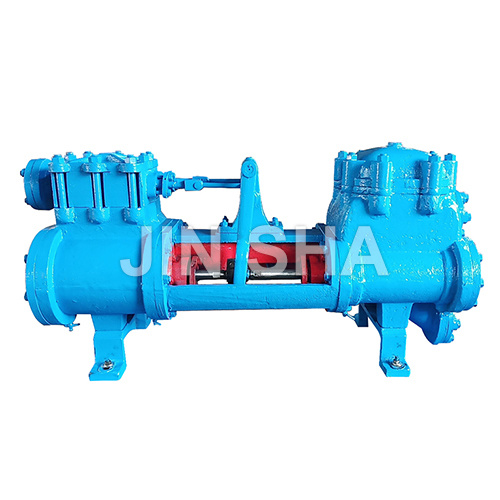NEWS CENTER
What are the features of 2QS Steam Reciprocating Pump
Time:
2022-03-17
(1) The discharge pressure of the 2QS Steam Reciprocating Pump depends on the steam pressure. Since the cylinder area is generally 2 to 2.5 times larger than the water cylinder area, a higher pressure can be obtained. If the frictional resistance loss is not considered, the water pressure of 2 to 2.5 times the steam pressure of the boiler can be generated on the piston of the water cylinder.

(2) The flow rate of the 2QS Steam Reciprocating Pump depends on the flow rate of the steam, and it is more convenient to adjust. This kind of pump cannot adjust the flow by the throttling method of adjusting the opening of the valve on the outlet pipe. Generally, the flow is adjusted by adjusting the opening of the steam inlet valve, and the flow can also be adjusted by bypassing the outlet pipe to the inlet pipe. This pump can adapt to large load changes.
(3) High efficiency, generally up to 80% to 95%.
However, the 2QS Steam Reciprocating Pump is cumbersome in structure, large in size, complicated in transmission mechanism, troublesome to operate, consumes a lot of steam, and has a high cost. For these reasons, the steam reciprocating pump is basically not used as the main water supply equipment of the boiler, and it is generally only used as a backup pump when the power is cut off. However, some boiler rooms consider the continuous water inlet of the economizer, and still use the steam reciprocating pump, which is easy to adjust the flow, as the daily water supply equipment of the boiler.
2QS Steam Reciprocating Pump is powered by steam, its main advantages are simple structure, easy installation, use and maintenance. It can be used as long as the steam and water inlet and outlet pipes are connected, and it can be used for general water delivery, and can also be used for small and medium boiler feed water. If the piston and some parts in the cylinder are replaced, it can also be used in oil refineries to transport petroleum products, mine drainage, etc.
More News


